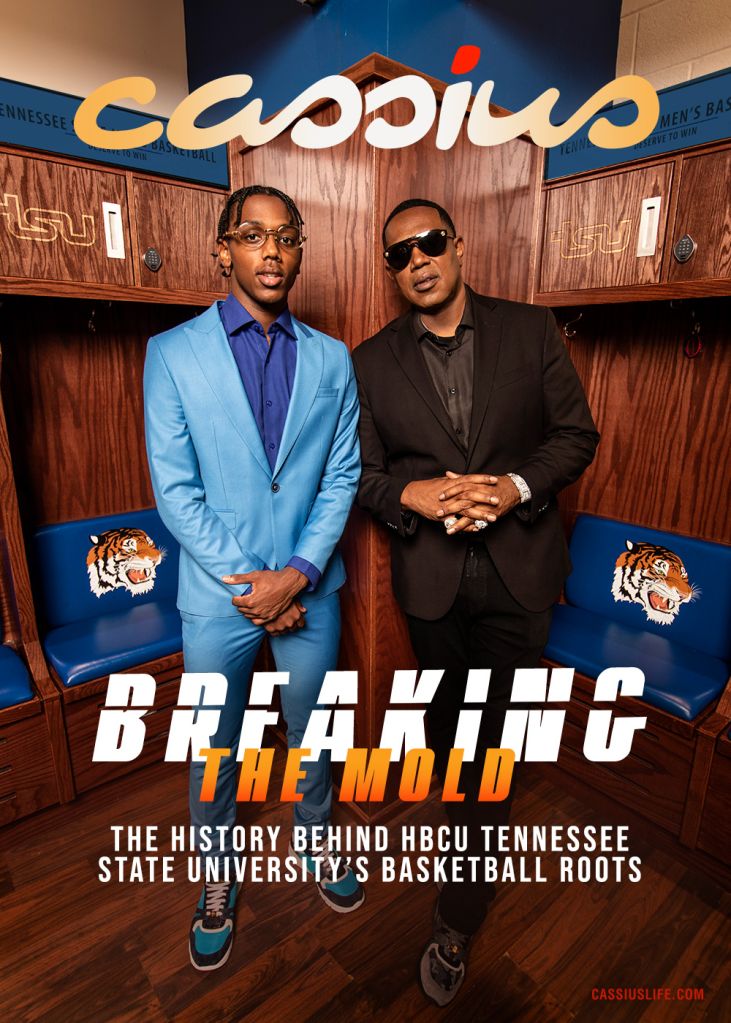
Source: Devin Wilson / Devin Wilson, iOne Digital
Sponsored by Target

Hercy Miller could’ve started his collegiate basketball legacy almost anywhere. He could’ve gone to Ben Simmons’ alma mater LSU and helped them get another regular-season SEC championship. He could’ve donned the iconic blue and gold at UCLA, the school with the most NCAA national titles in history and a Final Four berth earlier this year. He didn’t continue the trend of Black three-star recruits going to predominantly white institutions under the pre-conceived notion that they were his best chance at making the NBA.
He chose Tennessee State University, a historically Black college (HBCU) that has never won a national title in the NCAA. But, if you think he chose a lesser college, it’s time to school you on just how much Tennessee State University has meant to not only basketball but Black people, in general.
Tennessee State is home to arguably the first important HBCU basketball team in the history of college sports. While the NCAA wouldn’t have a national championship team with an all-Black starting five until Texas Western College’s barrier-breaking win in 1966, Tennessee State (known then as Tennessee A&I) became the first historically Black college to win a collegiate national basketball title in 1957 after winning the Men’s Basketball Tournament
In the National Association of Intercollegiate Athletics (NAIA). After showing all of the segregationists and doubters the championship mettle of Black collegiate athletes, they did it again and then did it again, winning the 1958 and 1959 titles. In doing so, Tennessee A&I became the first team in all college sports to win three straight titles.
In joining Tennessee State University, Miller is attaching his basketball career to the first true college basketball dynasty in American history. And the school was just getting started.
After becoming a member of the NCAA in the 1960s as a Division II school, the HBCU powerhouse showed its NAIA dominance was not a result of towering over the weaker competition but instead a sign of greatness to come. The Tigers had four Final Four berths and two National Championship appearances in six seasons between 1970-1975. The Tigers’ Division I tournament history is a bit abysmal, but the school has still produced its fair share of impactful NBA talent. 14 years after being named MVP for the 1958 and 1959 Tennessee A&I back-to-back NAIA championship teams, shooting guard Dick Barnett helped the New York Knicks in 1970, and 1973 win their only two championships in the team’s 75-year history. 13 years after averaging 28 points per game along with ten rebounds per game in his senior year as a Tiger, Anthony Mason an NBA All-Star, Sixth Man of the Year, All-NBA Defensive Second team and the fearsome enforcer 1993-1994 New York Knicks who achieved one of the team’s only two NBA Finals berths in the last 50 years.
NBA veteran Robert Covington was also a product of the Tigers’ organization, going from an undrafted prospect to being named to the NBA All-Defensive First team in his fifth year in the league and playing pivotal roles in playoff runs for the Houston Rockets and Philadelphia, helping the latter get its first 50-win season in more than 15 years. But, his greatest contribution to the game of basketball has been his continued commitment to the betterment of the Tigers program, which got him into the NBA. Covington funding a $1 million facility at the school in November 2020 was the largest gift to an HBCU by a former athlete of the school ever, according to Mark Berman of Fox 26 Houston. Five months later, the eight-year NBA veteran surprised two TSU students with $25,000 scholarships. Yet, the biggest impact on his alma mater could be inspiring future stars to join the team.
Miller specifically credited Covington’s NBA success story with providing proof an HBCU collegiate career can lead to a worthwhile NBA career. He also saw joining an HBCU with a rich basketball history at Tennessee University as a potential catalyst for a paradigm shift in perception of HBCU’s for future recruits.
“With my decision [to go] here, I felt like I wanted to make a change, I wanted to make a difference. I feel like I’m the type of player that I’m a leader. People look up to me. A lot of people follow me. And I feel like, with hard work, it’s possible,” Miller told CASSIUS.
The next time you think a star basketball player joining an HBCU will hurt their chances of making it to the NBA, go through the history books and put some respect on the Tigers’ illustrious name.
Get a look at some behind-the-scenes footage of our shoot with Master P & Hercy Miller at Tennessee State University in the video clip below.
















